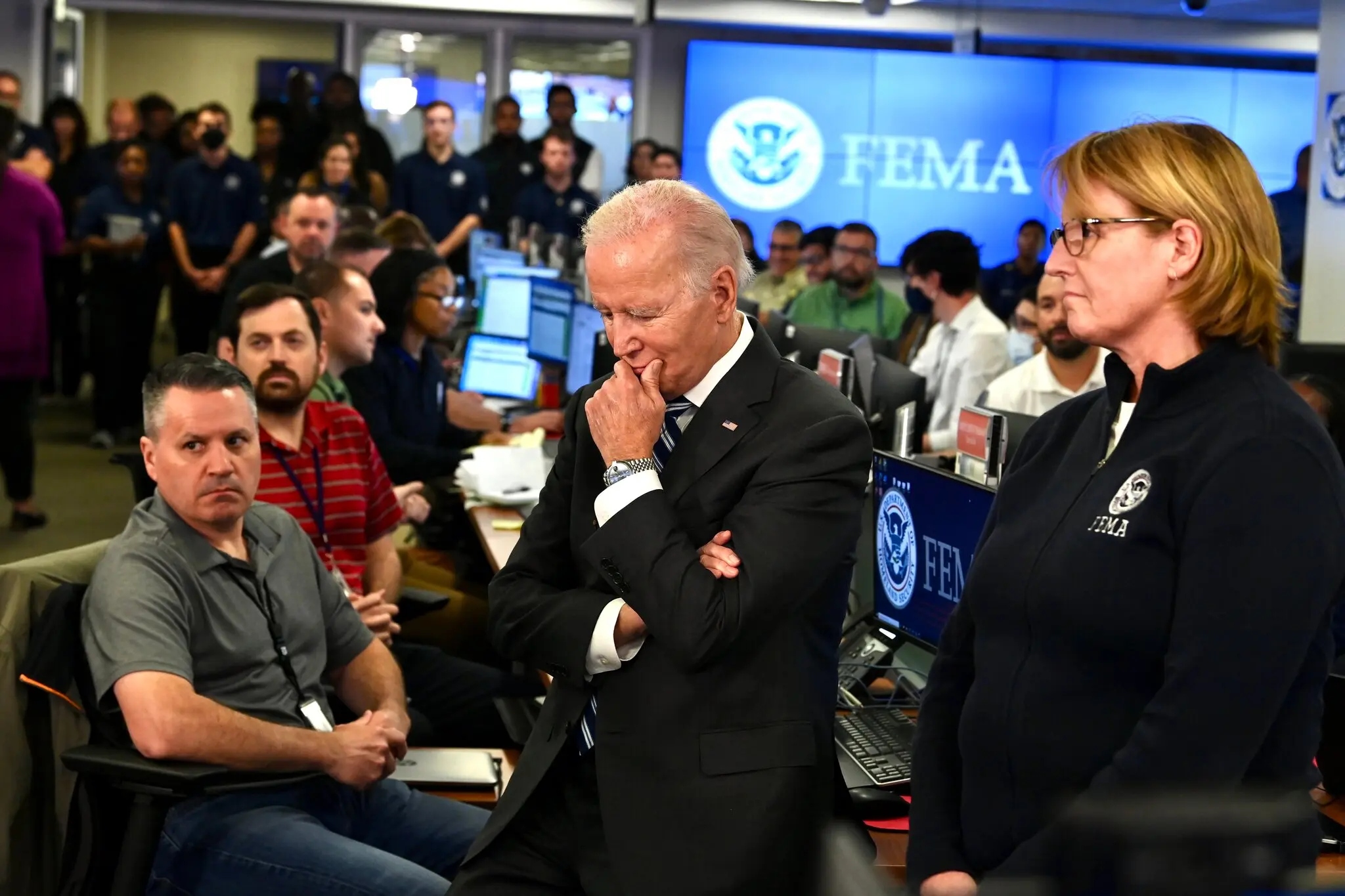The Biden-Harris administration’s Homeland Security Secretary, Alejandro Mayorkas, has warned that the Federal Emergency Management Agency (FEMA) may not have enough funds to handle the ongoing hurricane season.
Despite being tasked with responding to natural disasters, FEMA’s financial resources are stretched thin, particularly in light of recent hurricanes and a notable $1 billion spent on housing for illegal immigrants this fiscal year.
This growing concern comes as the country braces for more potential storms and disaster recovery challenges.
During a trip to North Carolina with President Joe Biden, Mayorkas highlighted the issue. Western North Carolina has experienced devastating flooding and mudslides in the aftermath of Hurricane Helene, which has left at least 160 people dead.
Mayorkas expressed concerns that FEMA’s budget might not be able to fully support disaster relief efforts through the rest of the season, despite the urgent need. He pointed out that the damage from Hurricane Helene, in particular, has already created significant financial strain on the agency’s resources.
This isn’t the first time Mayorkas has raised alarms about FEMA’s financial constraints. Earlier this year, in June, the secretary told Congress that FEMA was underfunded and might struggle to meet its obligations if multiple natural disasters occurred in a short timeframe.
The hurricane season, which typically lasts from June to November, is still in full swing, and future storms could further drain FEMA’s disaster relief resources.
FEMA’s budget for the fiscal year 2024 was set at approximately $20 billion, while the Department of Homeland Security (DHS), which oversees FEMA, received over $61 billion. Though the agency has a substantial budget, recent decisions regarding how to allocate funds have sparked controversy.
One particularly contentious issue is the large amount of money FEMA has spent on housing for illegal immigrants. In April 2024, FEMA announced it would provide $640.9 million to help non-federal entities cover costs related to food and shelter for noncitizen migrants.
These funds have been allocated to help local communities accommodate the influx of illegal immigrants as they await court hearings for their immigration status.
However, this initial grant was not the end of FEMA’s spending on the migrant housing crisis.
By the end of August, the agency had allocated an additional $380 million in supplemental grants for the same purpose, bringing the total amount spent on housing illegal immigrants to over $1 billion for fiscal year 2024.
This large expenditure has led to growing criticism from those who believe FEMA should focus more of its resources on disaster relief rather than immigration-related issues.
FEMA has defended its spending decisions, arguing that the grants for migrant housing were necessary to support communities affected by the sudden arrival of large numbers of migrants.
Many of these communities, particularly in border states, have struggled to provide basic necessities such as food and shelter for the growing number of people entering the country illegally. FEMA’s financial support is intended to alleviate some of these pressures.
Yet, with hurricanes continuing to batter the U.S., critics argue that the agency is diverting essential funds away from natural disaster response efforts. Hurricane Helene has been one of the most destructive storms of the season, causing widespread devastation across multiple states.
Western North Carolina, in particular, has been hit hard, with entire towns submerged by floods and landslides. Emergency responders are working around the clock to rescue survivors and assess the damage, but the response has been hindered by the lack of available funds.
As Mayorkas warned, FEMA’s budget could fall short if more storms strike the country. The concern now is that if FEMA’s financial reserves are depleted by non-disaster-related expenses, such as migrant housing, the agency might not be able to fully respond to future natural disasters.
The issue is further compounded by reports of lawlessness in areas devastated by the recent hurricanes. Earlier this week, The National Pulse reported that eight illegal immigrants were arrested for looting in flood-ravaged eastern Tennessee, following Hurricane Helene.
Incidents like these raise questions about whether local authorities have the resources they need to handle both disaster recovery and rising crime in areas affected by the storms.
Despite the growing criticism, the Biden administration has shown no signs of reversing its policy of allocating FEMA funds for migrant housing.
FEMA officials have stated that they are committed to supporting both natural disaster recovery and assisting communities dealing with migrant arrivals. However, with hurricane season far from over, the debate over how FEMA’s budget is being managed is likely to intensify.
As FEMA continues to balance its disaster relief responsibilities with other funding obligations, the question remains: Will the agency have enough money to meet the demands of future storms?
For now, officials are urging caution and calling for additional resources to ensure FEMA can continue its critical work. But unless more funds are allocated soon, FEMA’s ability to respond to natural disasters could be in jeopardy.



